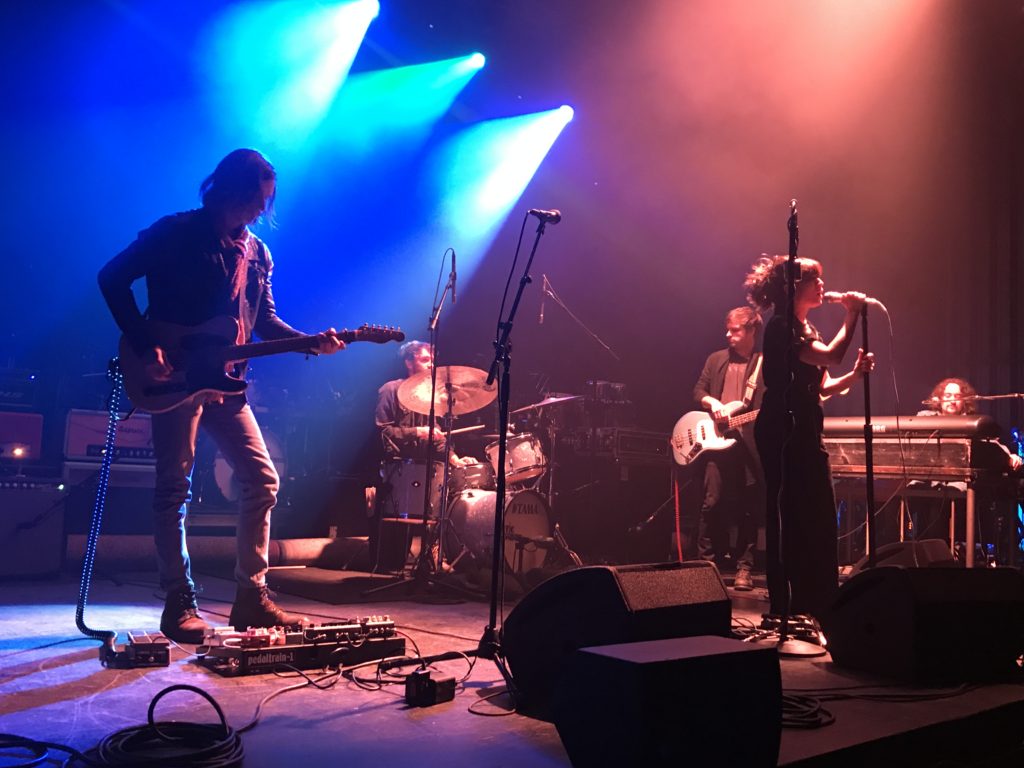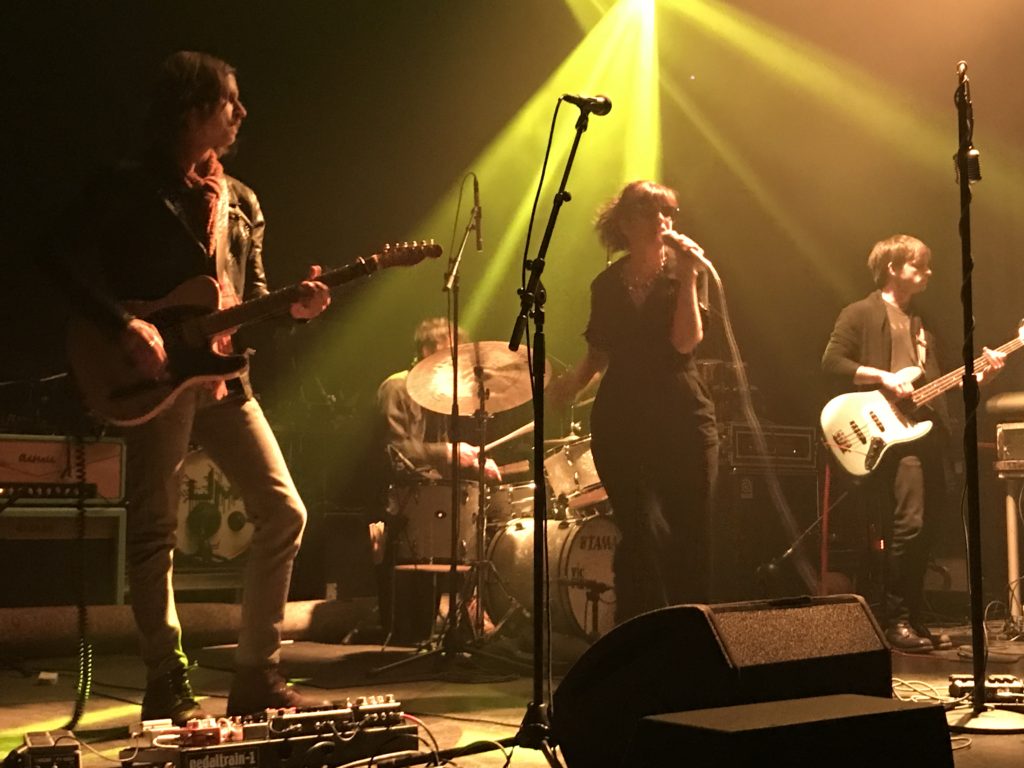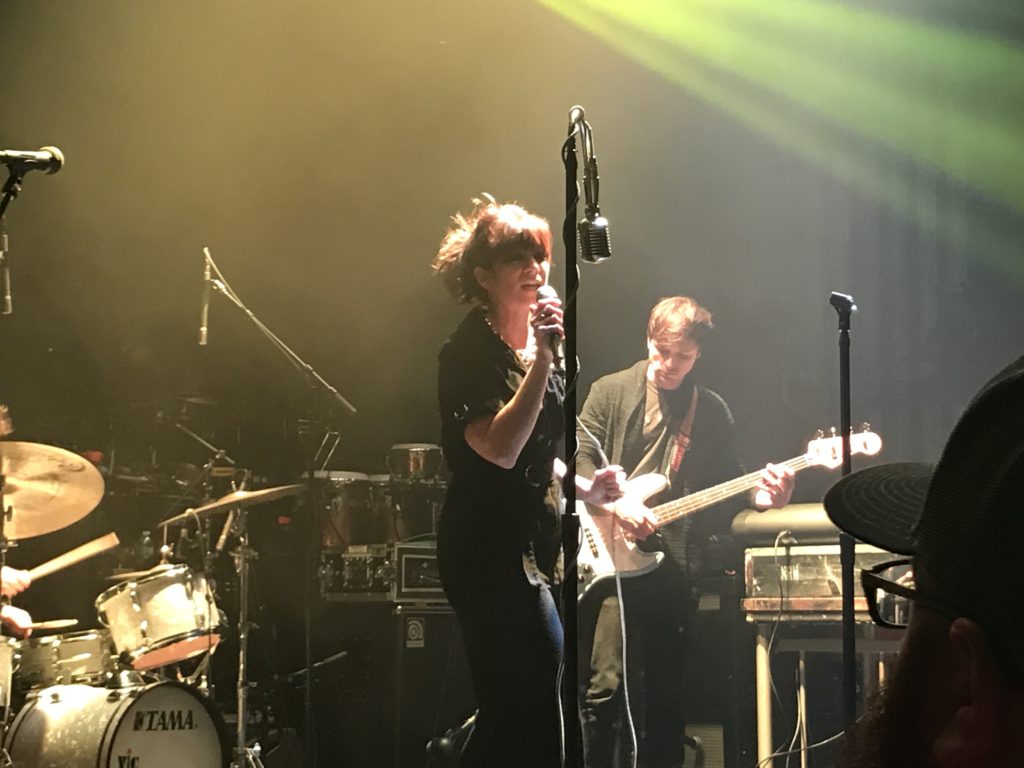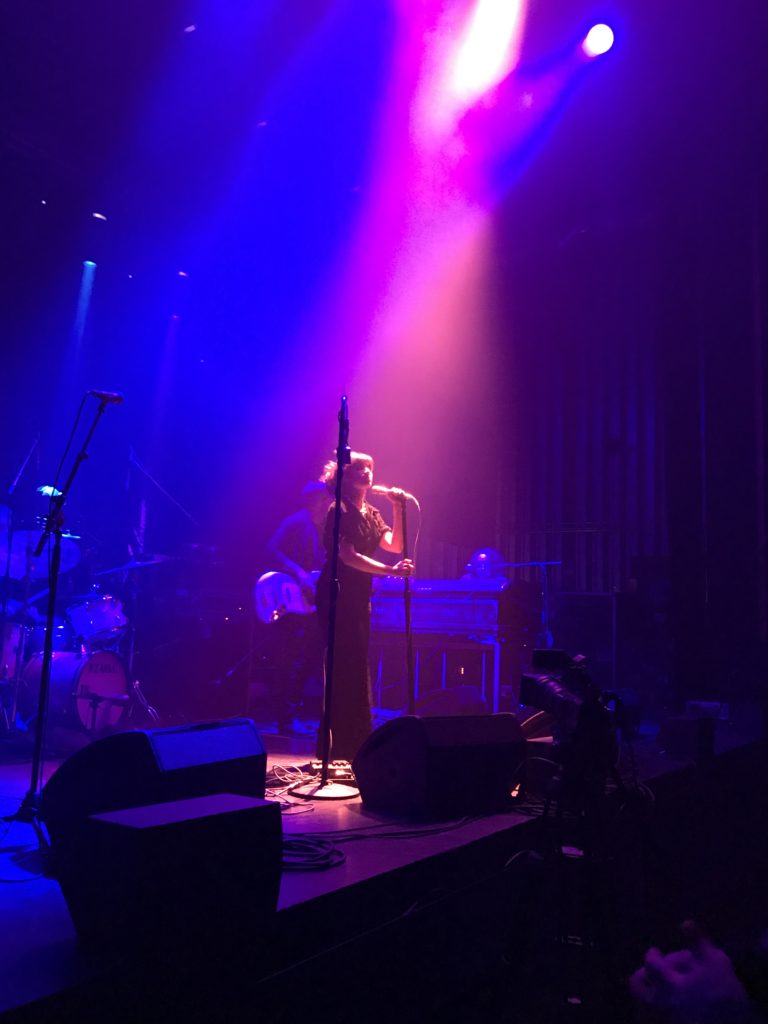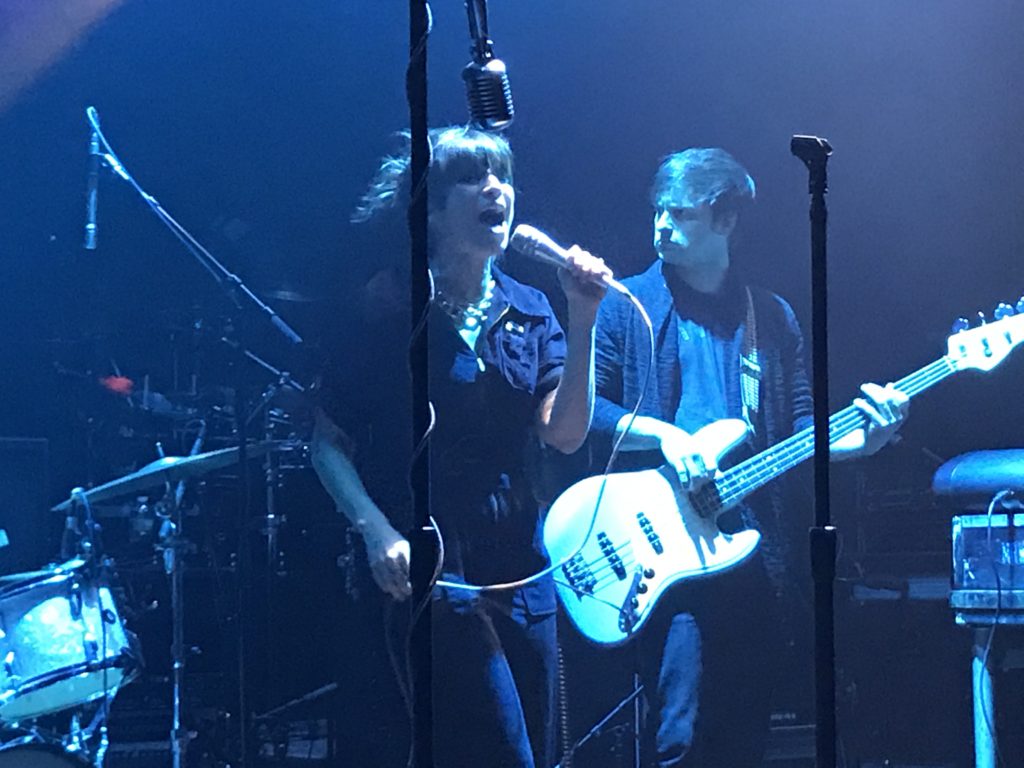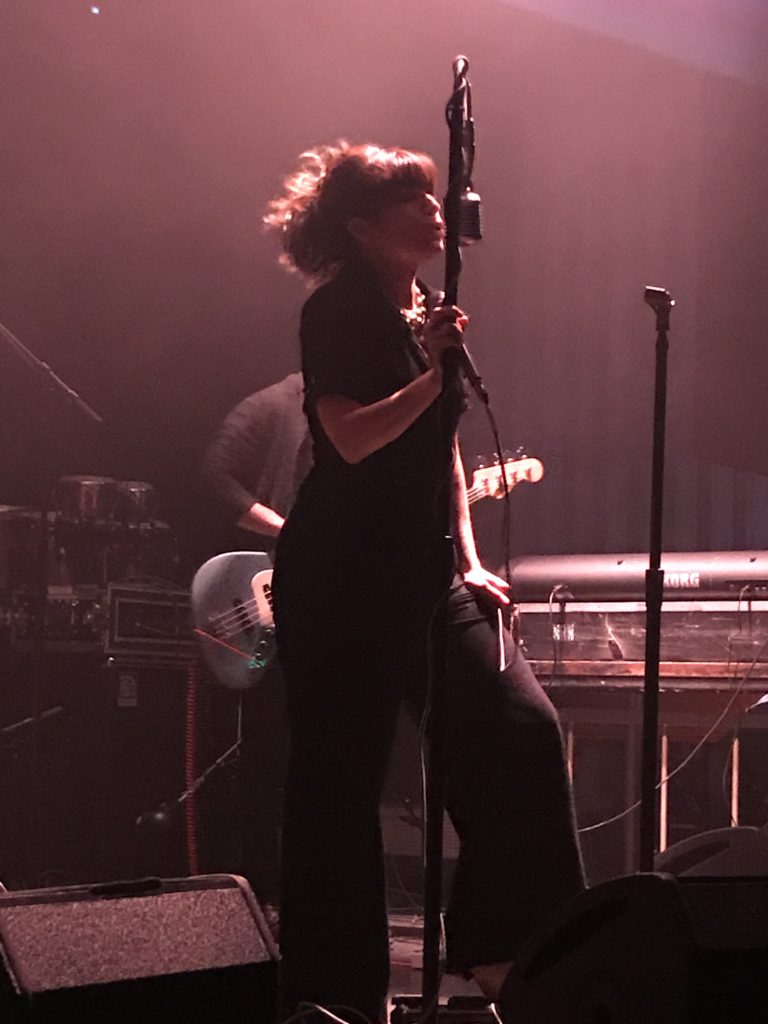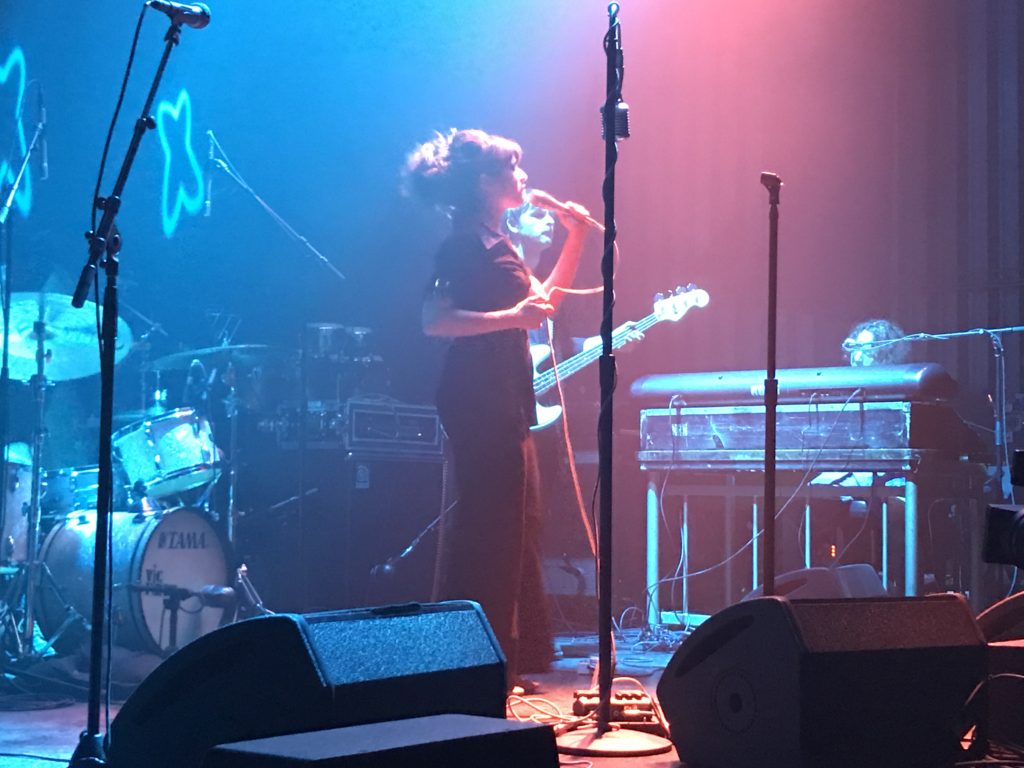Sometimes the greatest art comes from an artist in transition. When Asbury Park-native Nicole Atkins was writing her latest record, the vintage soul collection Goodnight Rhonda Lee, she packed up and moved to Nashville with her tour manager husband while putting down the bottle and learning to live without booze. It was this time of new beginnings and uncertainty that sparked Atkins to write her most focused and distinguished effort yet.
Consistently compared to Roy Orbison, Atkins’ music is an amalgam of 50s-style croons, 60’s psychedelia and the Brill Building era. On last year’s Rhonda Lee, she zeroed in on soul, splashing it with alt-country twangs—two styles that befit both her vocal talents and musical progression across her four studio albums. As it turned out, Nashville was the perfect place for her to land and reign it all in.
“I wanted the kind of sound that was more like a Muscle Shoals type of sound. There’s more people doing that down there in Nashville than in New Jersey,” she tells me via phone the night before a gig in New Haven, Conn.
Atkins points to Bobby “Blue” Bland, Aretha Franklin, Leonard Cohen, Lee Hazelwood, The Righteous Brothers and Chris Isaac as some of the record’s biggest influences. Atkins and Isaac toured together early in her career and were reacquainted after she interviewed him for SiriusXM’s The Spectrum. Shortly after, Atkins found herself in San Francisco writing with Isaac who urged her to emphasize her voice more in the mix.
“I had ‘A Little Crazy’ in my phone—just the melody for it, not the chorus—but I was saving it for years and I realized, ‘Oh wait, this is what I was saving it for.’ It was the perfect song to do with him.”
Isaac also lent his hand to the album’s title song, which originally had lyrics penned “say goodnight to the band.”
“I just couldn’t really understand how to put my lyrics to that. The day before the record was made, I was going to call it ‘This One’s For Rhonda Lee,’ but then I put down ‘say goodnight Rhonda Lee’ instead of ‘say goodnight to the band,’ and it just totally fit.”
As she graced the stage of New Haven’s College Street Music Hall, Atkins channeled the ghosts of her gurus like some sort of musical medium, alternating between croons and belts like a modern day Janis Joplin. The set was comprised mostly of cuts from Rhonda Lee, though she diverged to showcase pop sensibilities with Mondo Amore’s “Cry Cry Cry,” and flaunted serious indie-rock vibes with “Who Killed the Moonlight?” from Slow Phaser. The focus was directed on new tracks like “Darkness Falls So Quiet” and “A Dream Without Pain,” a song that encapsulates the combo sound she was striving for and places all her influences simultaneously in the spotlight.
Atkins grew up listening to everything from Michael Jackson and Stevie Wonder, to Traffic and Cream. Other favorites included Jackie Wilson, Orbison and the Mamas & the Papas. She has her family to thank, in part, for her musical foundation.
“My uncle turned me on to the classic rock stuff and my mom turned me on to soul music. My grandma turned me on to country. She was really into Brenda Lee and Patsy Cline. There aren’t any musicians in my family, but they’re all big music fans.”
Atkins lists Nick Cave and the Bad Seeds, Beach House, Mark Lanegan and the psychedelic acts Tame Impala and King Gizzard and the Lizard Wizard as some of her contemporary faves. Her love for psychedelia harks back to her affinity for classic eras. Sounds of the ‘60s bleed through Atkins’ discography; the pointedly soulful direction on Rhonda Lee gives it its own timeless feel akin to the records she grew up with. Atkins’ sound is seemingly out of a blender, fusing her love of throwback music with dashes of southern soul and pinches of psychedelia. It’s an intoxicating concoction that lays the foundation for the eclectic Rhonda Lee, which is not only the pinnacle of her career thus far, but the music she was seemingly destined to make.
While Atkins has always been a soul singer dabbling in lush landscapes of pop and indie-rock, Rhonda Lee fully commits to soul, even amid the bounciness of tracks like “Listen Up” and the accents of steel guitar sprinkled throughout.
“I felt this record was more soul in the way that I feel it. It was definitely my sound rather than a producer’s sound,” she says.
And in embracing soul, she bared her own, framing Rhonda’s narrative around her struggles with drinking and personal growth. The titular character was an old bowling alias Atkins used, but the nickname stuck and eventually transformed into her drunken moniker. But Atkins assures that saying goodbye to her alter ego is only part of the story. While she claims that Rhonda Lee is her most personal record yet, she feels it transcends the tales of her bad habits alone. “It was more of just a document of my life at the time,” she says.
Still, her lyrics on the record’s title track remain relevant for any listeners looking to bury their own demons and press restart: “Don’t let it crush ya / Change don’t come easily / Say goodnight, say goodnight, say goodnight, say goodnight Rhonda Lee.”
Four albums deep, Atkins is more dogged than ever. While saying goodbye to the past is never easy, she’s jettisoned her inner Rhonda, harnessing her life in flux rather than harping on it. So goodnight, Rhonda Lee. Nicole Atkins is looking to the future.
